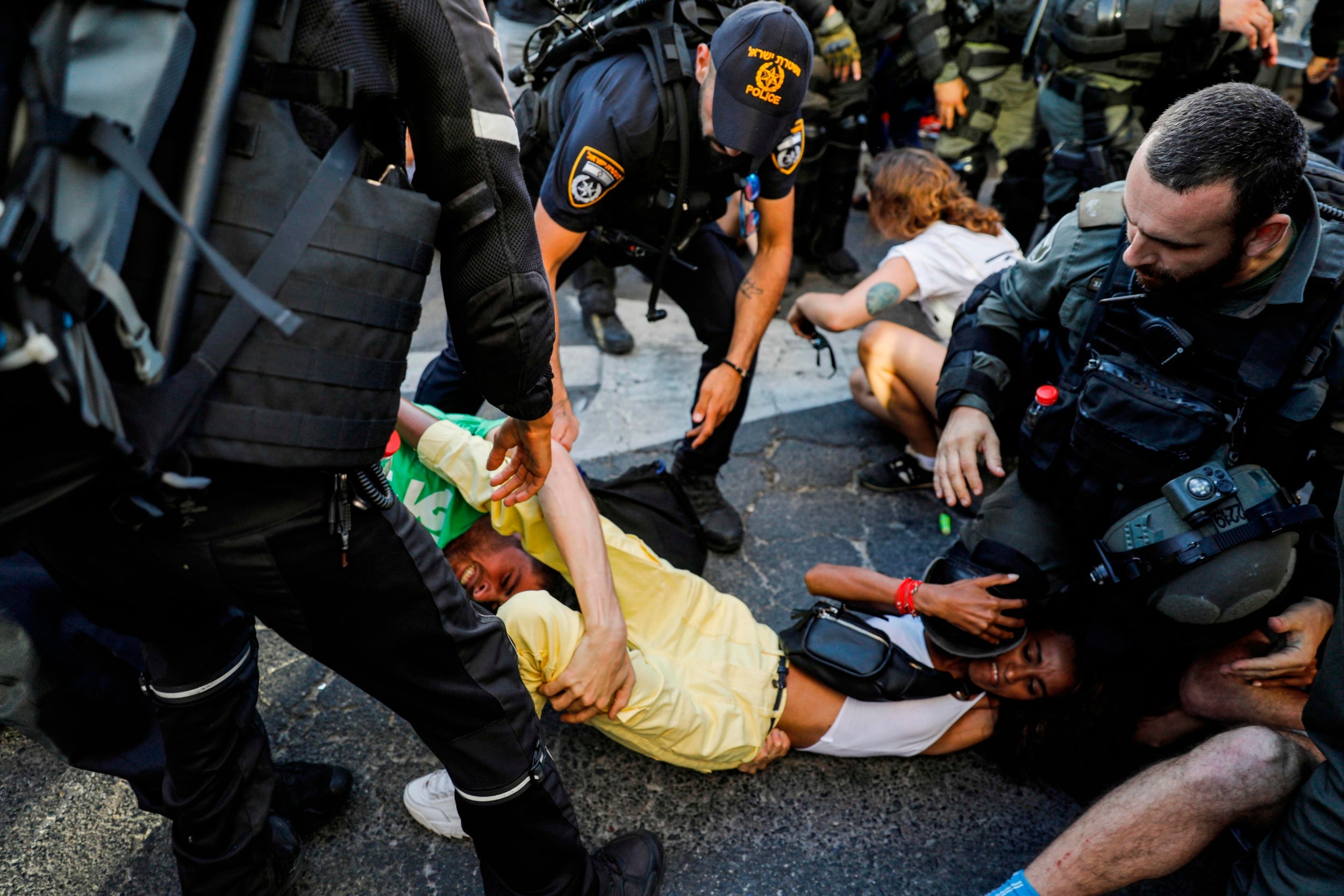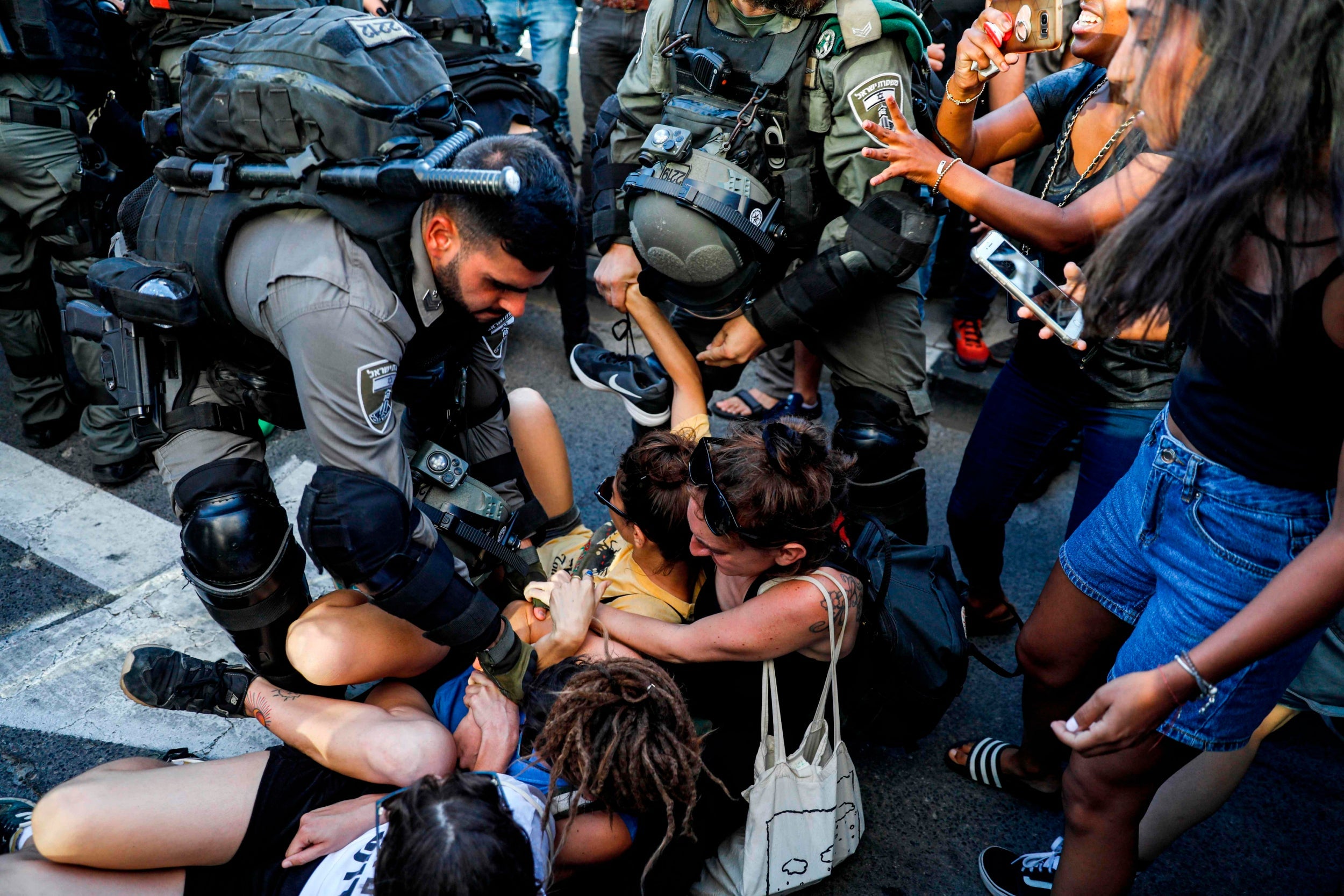Solomon Teka: Dozens wounded and arrested as Ethiopian Israelis protest police killing
Over a hundred police officers injured and more than 130 protesters arrested, as anger soars over the shooting of an Israeli-Ethiopian teenager
Your support helps us to tell the story
From reproductive rights to climate change to Big Tech, The Independent is on the ground when the story is developing. Whether it's investigating the financials of Elon Musk's pro-Trump PAC or producing our latest documentary, 'The A Word', which shines a light on the American women fighting for reproductive rights, we know how important it is to parse out the facts from the messaging.
At such a critical moment in US history, we need reporters on the ground. Your donation allows us to keep sending journalists to speak to both sides of the story.
The Independent is trusted by Americans across the entire political spectrum. And unlike many other quality news outlets, we choose not to lock Americans out of our reporting and analysis with paywalls. We believe quality journalism should be available to everyone, paid for by those who can afford it.
Your support makes all the difference.Israeli security forces braced for a third day of unrest after an off-duty policeman shot dead an Israeli teen of Ethiopian origin, sparking mass anti-racism protests that have turned violent.
At least 111 officers have been injured and 136 people arrested since Sunday when an officer killed Solomon Teka, 18, in Kiryat Haim, a town near the northern port city of Haifa.
Footage of major intersections, including Israel’s commercial capital Tel Aviv, showed angry protesters burning tyres and cars, jumping on vehicles, blocking roads and smashing windows.
In other clips, peaceful protesters chanted for an investigation into the killing and justice for the community.
The police said they had deployed additional forces on Wednesday in anticipation of further violence and fired tear gas at youth who hurled stones, bottles and petrol bombs at them.
Leading figures within Israel’s Ethiopian community told The Independent they were sick of the “excessive force” used by security forces against them and accused them of “institutional racism”.
Israeli President Reuven Rivlin and Prime Minister Benjamin Netanyahu both urged for immediate calm.
Mr Netanyahu acknowledged there were “problems that need to be solved” but implored protesters to adhere to the law.

“This community is dear to us,” he said at a security cabinet meeting on Wednesday.
“We are not prepared to either accept or tolerate the blocking of roads and the use of violence including firebombs against our forces, the burning of cars or any other property of citizens.”
“We are a nation of law. We demand that everyone respect the law.” He added.
Mr Rivlin had said earlier: "We must stop – I repeat, stop – and think together how we go on from here.”
He added: "We must allow the investigation into Solomon's death to run its course, and we must prevent the next death.”
Israel's Ethiopian Jewish community numbers around 140,000 people: most are children of immigrants who came to Israel in the 1980s and 1990s.
At least 50,000 were born in Israel, often into homes blighted by poverty, making integration difficult.
Teka was the second Ethiopian-Israeli to be killed in six months. Yehuda Biadga, 24, whose family claim was “mentally unstable”, was shot dead in the coastal city of Bat Yam in January after rushing at security forces holding a knife.
The community has consistently complained of institutionalised racism.
Racism against us is engrained into Israeli society, we are not given our proper rights
Superintendent Micky Rosenfeld, the Israeli police's foreign press spokesperson, said officers had shown restraint in dispersing rioters, but had been forced to take a tougher stance as the “disturbances become very violent".
He said the off-duty policeman told authorities he was with his wife and three children in the park that night and moved to break up an incident. The officer claimed he fired at the ground when the youth turned on him, and that Teka was shot by the bullet ricocheting off the ground.
“An investigation by the ministry of justice has been started to look into the use of the firearm,” Superintendent Rosenfeld told The Independent.
“The officer was arrested, he gave his version of what happened, he remains under house arrest,” he added.
But the community has raised questions about the police officer’s account and asked why he is being held under house arrest rather than a jail cell.
Family and supporters of Teka contend that he had been in the park hanging out with friends and was shot at unprovoked.
Senior members of the Israeli-Ethiopian community said the officer had “taken the law into his own hands.”
“From what we understand, Solomon was just standing there chatting and the policeman approached him and started to ask questions. We don’t know what led to the man pulling the trigger,” said Fentahun Assefa-Dawit, executive director of Tebeka, an Israeli organisation that provides legal aid and assistance to Israel’s Ethiopian population.
“The police officer took the law into his own hands. Opening fire should be the last resort when he is in serious danger, he added.

Mr Assefa-Dawit, who spoke on his way to a meeting with Mr Netanyahu, said the community was mulling over whether to demand an independent investigative committee look into the case.
“Unfortunately the excessive use of force against Ethiopian-Israelis is a huge problem for our community. This is not the first time,” he added.
“There have been too many incidents for this to be ignored. We don’t know what it stems from, probably stereotypes and ignorance within Israeli society,” he said.
Michal Avera Samuel, director of Fidel NGO that works on Ethiopian rights, said that many do not feel like equal citizens and are judged by “the colour of our skin”.
She said community also suffered from poverty and a lack of education.
“Racism against us is engrained into Israeli society, we are not given our proper rights,” she told The Independent.

Join our commenting forum
Join thought-provoking conversations, follow other Independent readers and see their replies
Comments